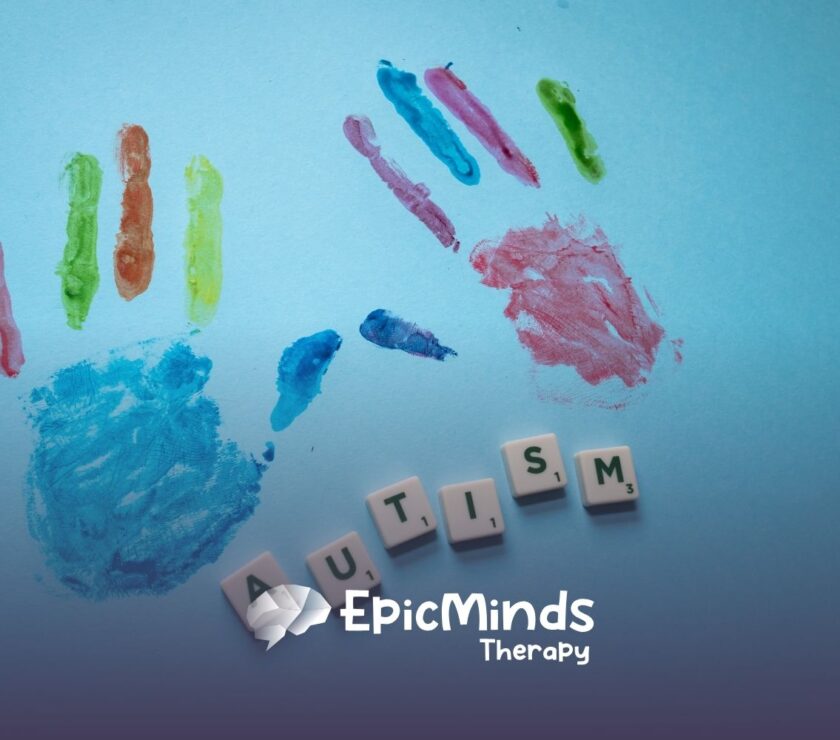Key Highlights
- Persistent myths incorrectly associate immunization shots with autism spectrum disorder, despite robust scientific evidence disproving this claim.
- Controversy emerged from a debunked study on the MMR vaccine led by Andrew Wakefield, published in The Lancet.
- Large cohort studies consistently show no relationship between childhood vaccines and autism risk.
- Health entities, such as the CDC and the WHO, affirm routine vaccination safety based on comprehensive research.
- Understanding true causes, such as genetics and developmental factors, is essential to combat misconceptions.
- Vaccine hesitancy risks outbreaks of preventable diseases, endangering community immunity.
Vaccines have been linked to autism in public debates for years—but not in science. This blog explores where the myth came from, what the data really says, and how you can confidently make decisions about your child’s health.
As a Board Certified ABA therapist, I’ve had many parents sit across from me in in-home ABA therapy and ask, “Did the shots do this?” It’s a question that deserves real, respectful answers—not fear or misinformation.
The Root of the Vaccine-Autism Myth
Where Did It Start?
The idea that vaccines cause autism can be traced back to one study—yes, just one. In 1998, Dr. Andrew Wakefield published a paper in The Lancet, claiming that the MMR vaccine (measles, mumps, rubella) was linked to intestinal inflammation, which he suggested led to autism.
But here’s the truth:
- The study included just 12 children.
- It didn’t include a control group.
- The data was manipulated.
- And it was later fully retracted.
Wakefield lost his medical license. But the fear he sparked? That lingered.
Why It Stuck Around
The idea caught fire partly because the timing of autism diagnoses often overlaps with when children receive vaccines. As a therapist, I’ve had parents point to “the day after the shot” as when they noticed a change. That timing can feel powerful—but correlation is not causation.
How the Media Amplified Misinformation
Emotional Stories vs. Scientific Reality
Media outlets at the time—especially in the UK and US—ran with Wakefield’s story. Many didn’t wait for scientific review. Emotional stories of parents blaming vaccines made for more engaging headlines than dry statistics.
Celebrities, like Jenny McCarthy, went on national platforms repeating the claim. The voices of scientists were often drowned out by emotional appeals.
“False balance in reporting gave legitimacy to an unproven theory,” explains Dr. Paul Offit, vaccine researcher at Children’s Hospital of Philadelphia.
What Science Says
The Evidence Is Overwhelmingly Clear
Vaccines do not cause autism. This is not based on one or two studies—it’s based on dozens of large, peer-reviewed studies.
Large-Scale Studies
- A Danish study published in Annals of Internal Medicine (2019) looked at over 657,000 children.
Finding: No increased autism risk from MMR vaccination.
(Source: Hviid et al., 2019) - In the UK, researchers compared autism rates before and after the MMR vaccine became routine.
Finding: No change in autism prevalence.
What Leading Health Organizations Say
- CDC: “Vaccines do not cause autism.”
- WHO: “Extensive studies have shown no evidence of a link.”
- AAP: “The evidence is clear. Vaccines are safe and vital for children.”
What Causes Autism, Then?
Autism Spectrum Disorder Explained
Autism is a developmental condition that affects how people communicate, learn, and interact. Signs typically appear in early childhood—often before vaccinations are given.
Common Early Signs:
- Limited eye contact
- Delayed speech
- Repetitive behaviors
- Difficulty with social interactions
As an ABA therapist, I often see signs of autism well before any vaccine appointments. It’s just that most families notice changes more clearly after age 1 or 2, when developmental delays become more obvious.
Known Risk Factors for Autism
According to the CDC, autism likely results from a mix of genetic and environmental factors, not vaccines. Some known contributors:
- Genetics: If one identical twin has autism, the other has a 9 in 10 chance of also being diagnosed.
- Prenatal Environment: Exposure to certain infections or toxins during pregnancy can raise risk.
- Brain Development: Imaging studies show atypical brain growth patterns in some infants even before birth.
Breaking Down Vaccine Ingredients
Is Thimerosal Dangerous?
Thimerosal is a mercury-based preservative once used in some vaccines. Here’s what’s important:
- It contains ethylmercury, which leaves the body quickly.
- It’s not the same as the toxic methylmercury found in some seafood.
- It has been removed from most childhood vaccines since 2001.
According to the FDA, there’s no evidence thimerosal causes autism. Autism rates actually continued rising after thimerosal was removed.
What About Aluminum?
Aluminum helps vaccines work better by boosting the immune response.
- Infants get more aluminum from breast milk and formula than from vaccines.
- The amount used is tiny—and well below safety limits set by the FDA.
Addressing Common Vaccine Myths
“Too Many Shots, Too Soon”
This is one of the most common worries I hear from parents.
But studies show that children’s immune systems handle far more pathogens daily than what’s in vaccines. According to the CDC:
- A child’s immune system can safely handle up to 10,000 antigens at once.
- The current vaccine schedule includes far fewer than that.
Delaying shots increases risk of serious illness, especially in babies.
How Vaccines Are Tested and Monitored
Before Approval: Rigorous Testing
All vaccines in the U.S. must go through multiple phases of clinical trials before they reach the public.
- The FDA reviews all trial data for safety and effectiveness.
- Only after passing these reviews are vaccines approved.
After Approval: Ongoing Surveillance
Even after approval, vaccines are continuously monitored through systems like:
- VAERS (Vaccine Adverse Event Reporting System)
- VSD (Vaccine Safety Datalink)
If any safety concerns emerge, they’re investigated right away.
Why Vaccine Hesitancy Is a Public Health Risk
When Hesitancy Leads to Outbreaks
When fewer people vaccinate, diseases come back. This is not theory—it’s already happening.
- In 2019, the U.S. saw over 1,200 cases of measles, the most since 1992.
- These outbreaks were linked to under-vaccinated communities.
Herd immunity protects everyone—including babies and immunocompromised children who can’t get vaccinated. It only works when most of us participate.
Final Thoughts: Facts Over Fear
Vaccines save lives. Autism is not caused by vaccines. These facts are supported by decades of research, not just opinions.
If you’re a parent who’s worried—you’re not alone. But real answers come from trusted sources like the CDC, WHO, and your pediatrician.
As someone who works closely with children with autism every day, I can tell you this: they deserve advocacy, understanding, and support—not myths that distract from what really matters.
At Epic Minds Therapy, we work every day with children on the autism spectrum — and the families who love them. Our ABA therapy services are rooted in compassion, science, and personalized care that empowers your child to thrive.
Based in North Carolina, we proudly serve families across the region with in-home and school-based ABA therapy led by Board Certified Behavior Analysts.
Take the first step today.
Schedule a free consultation and see how we can support your child’s growth, communication, and confidence.
Frequently Asked Questions
Can any vaccine cause autism in children?
Many studies show that there is no link between vaccines and autism in children. Big health organizations, like the CDC and WHO, say that vaccines are safe. They do not cause the development of autism or autism spectrum disorder. More research keeps showing the same thing.
Are there risks to delaying or skipping vaccines?
Delaying or missing vaccines makes it more likely for people to get diseases that we could stop. This can cause serious health problems. It also makes herd immunity weaker. That means people who are more likely to get sick, like the old or very young, are at higher risk. Outbreaks can happen because of this, even though they could have been stopped.
Why do some parents still believe in the vaccine-autism link?
Some parents still think there is a link between vaccines and autism spectrum disorder (ASD) because of wrong information, stories they hear from others, and a lack of trust in health organizations. The emotional stories people share can take over the facts. This makes fears about autism and ASD continue, even though there is a lot of scientific evidence that shows vaccines do not cause autism. Many studies have shown there is no link, but the myth lives on for some people.
How can I talk to someone concerned about vaccine safety?
To help with worries about vaccine safety, it is important to listen to people and show that you care about how they feel. You can share reliable resources from trusted health groups. Try to keep the talk open, so everyone can share their thoughts. It can also help to tell them to speak with healthcare professionals. The experts can give them facts on vaccines and explain how they help both people and the whole community stay healthy.
Where can I find reliable information about vaccines and autism?
You can find reliable information, like about autism spectrum disorder and vaccination, on trusted health websites such as the CDC, WHO, and AAP. These sites give evidence-based answers. They help clear up myths about vaccines and autism. It is a good idea to get facts from these sources.
Sources:
- https://publichealth.jhu.edu/2025/the-evidence-on-vaccines-and-autism
- https://www.cdc.gov/vaccine-safety/about/autism.html
- https://pmc.ncbi.nlm.nih.gov/articles/PMC5789217/
- https://www.chop.edu/vaccine-education-center/vaccine-safety/vaccines-and-other-conditions/autism
- https://kidshealth.org/en/parents/autism-studies.html





